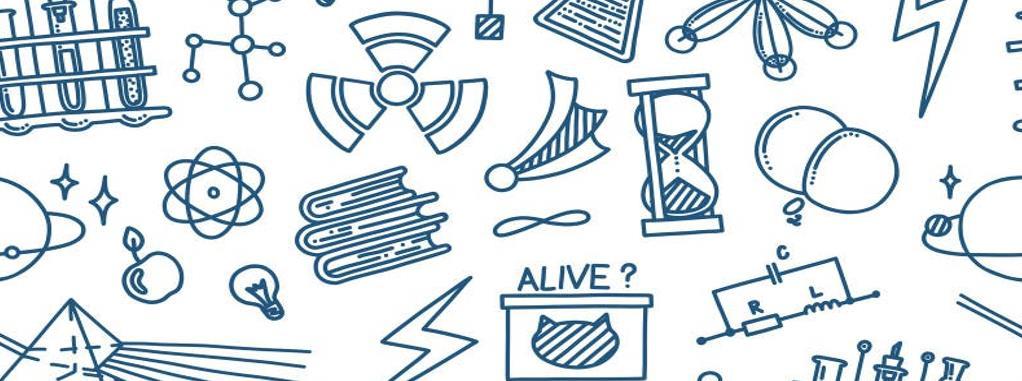






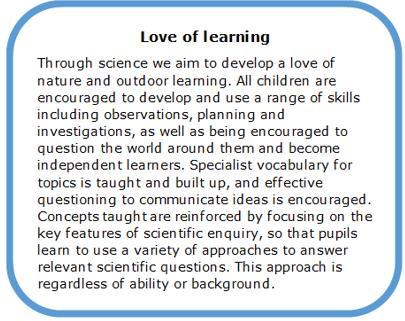
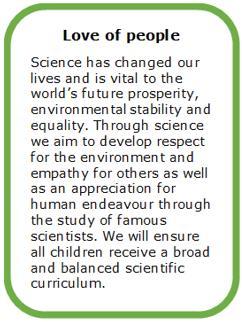

Throughout the school we aim to offer an exciting and dynamic science curriculum designed to stimulate the interest and enthusiasm of our students.
Science is a core subject that demands a dynamic approach to make it interesting and challenging. Therefore, we always strive to make it as practical and hands-on as possible allowing students to investigate experiment and have fun finding out about the world within which they live.
We teach science weekly in single year groups. To support us we use the KPOW resources.
Much of our science curriculum is delivered in the Forest School sessions which supports the teaching of skills such as thinking scientifically, investigation, cooperation, teamwork and resilience.

Pupils will develop Scientific knowledge and understanding in seven key areas.



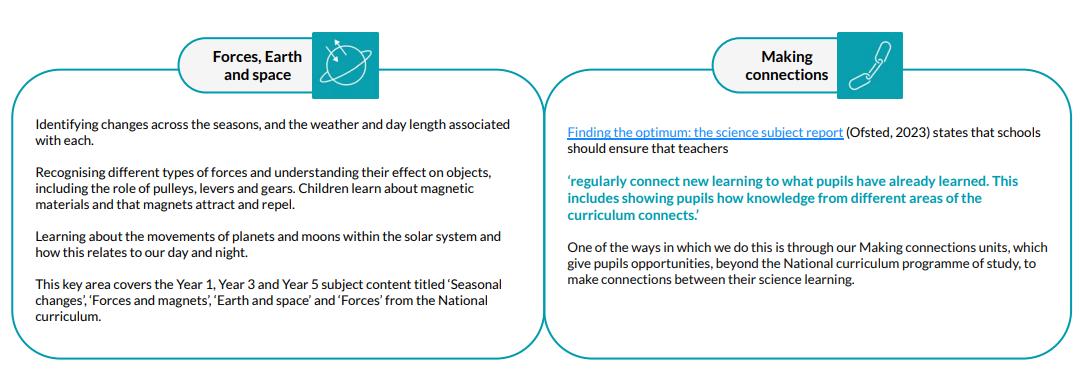

For science we teach the following units in single year groups
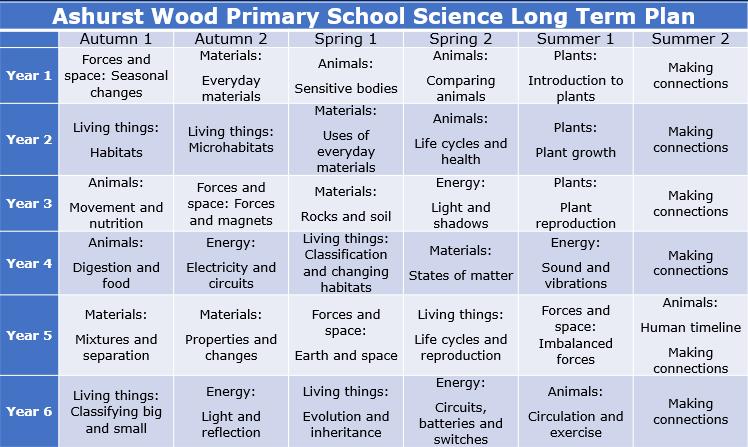

The 'Working Scientifically' element of the science curriculum is ongoing throughout KS1 and KS2. It is embedded within the content of biology, chemistry and physics, focusing on the key features of scientific enquiry, so that pupils learn to use a variety of approaches to answer relevant scientific questions.

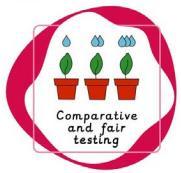
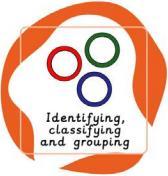
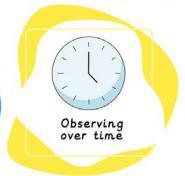
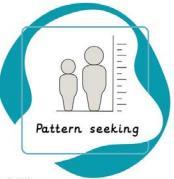
Children develop understanding of the nature, processes and methods of science through different types of science enquiries that help them to answer scientific questions about the world around them.

Science in EYFS ELG: The Natural World Children at the expected level of development will:
• Explore the natural world around them, making observations and drawing pictures of animals and plants.
• Know some similarities and differences between the natural world around them and contrasting environments, drawing on their experiences and what has been read in class.
• Understand some important processes and changes in the natural world around them, including the seasons and changing states of matter. Reflecting these goals, the focus in Science in the Early Years is on making observations and finding ways to record what they see and exploring similarities and differences.
Throughout this, the children are encouraged to explore their world and ask questions. Children in the EYFS have a Forest School session every week.

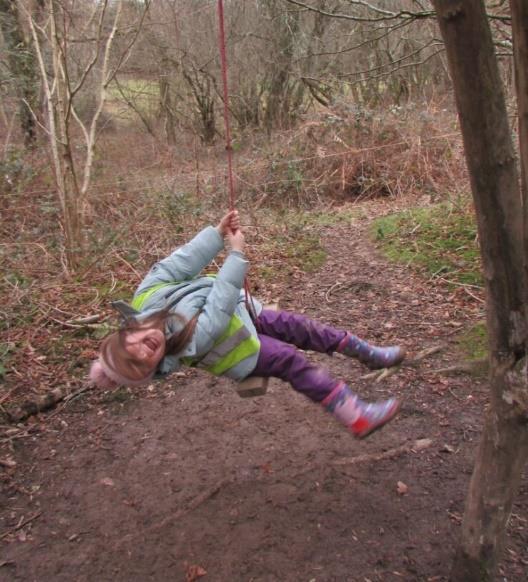


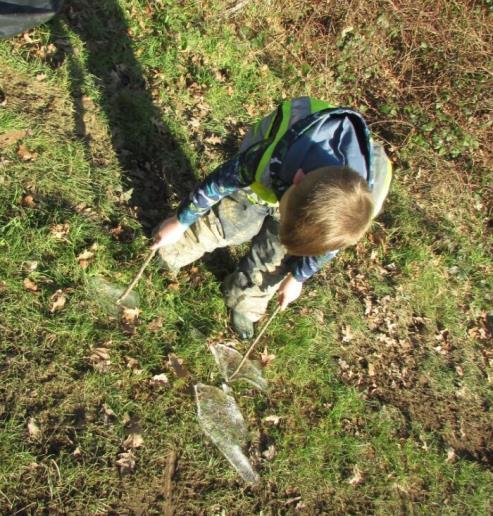
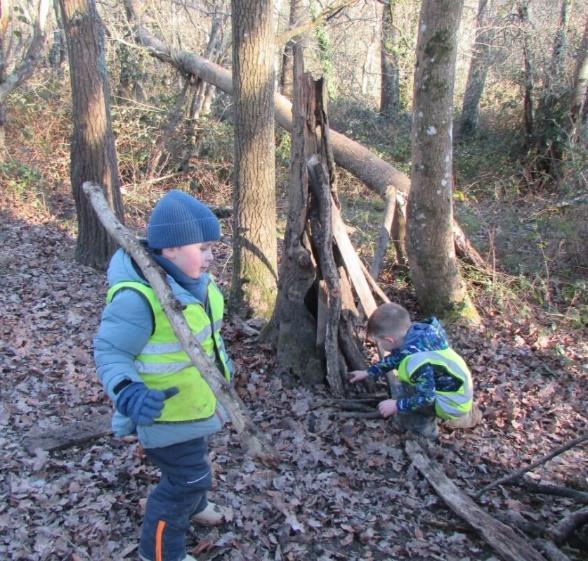



At Ashurst Wood we aspire to promote children’s independence and for all children to take responsibility in their own learning. At the end of each unit of work, the children are given a set of assessment cards, which as a group, they must demonstrate their learning. These tasks enable the children to articulate scientific concepts clearly and precisely, assisting them in making their thinking clear, both to themselves and others.
Teachers also assess children’s work in science both by making informal judgements as they observe them during lessons and at the end of each unit of work using the assessment tool mentioned.
At the end of each unit, the teacher makes a summative judgement about the work of each pupil in relation to the skills they have developed in-line with the National Curriculum in England 2014 and these are reported to parents as part of the child’s annual school report. At the end of the year all assessments are recorded on Insight the school’s tracking system.

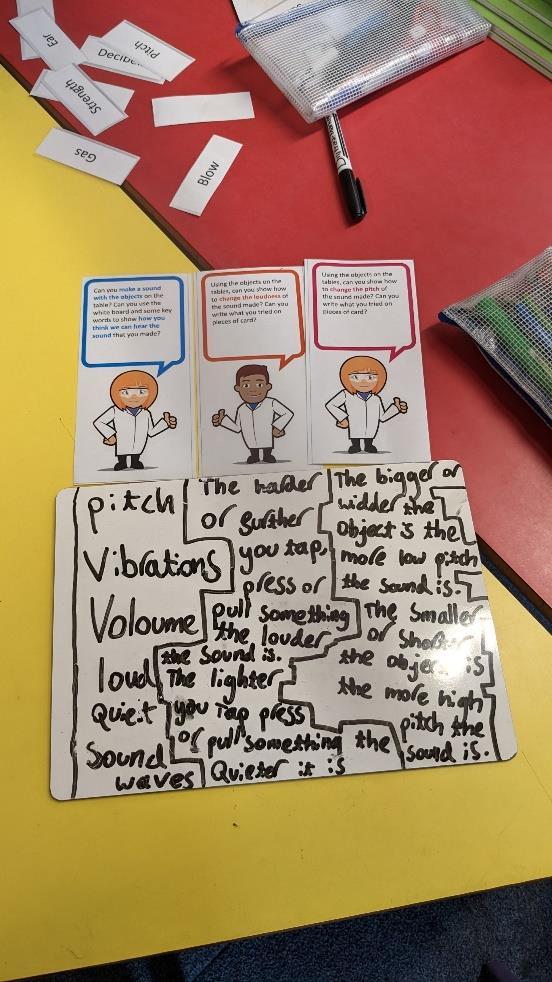
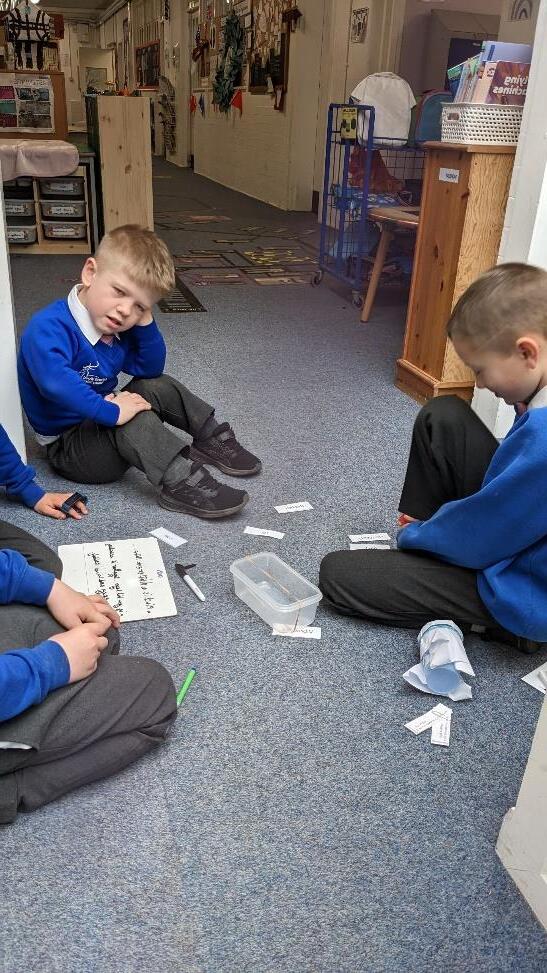


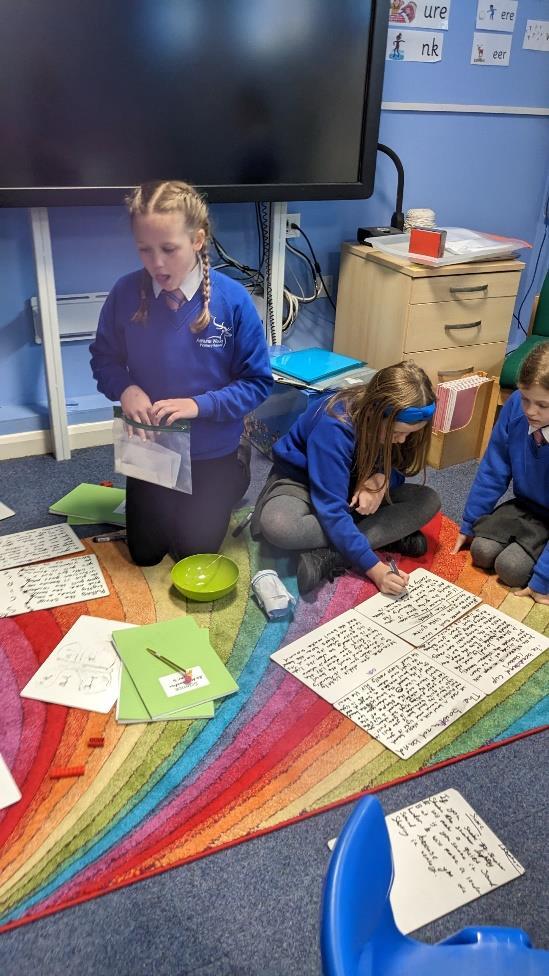

I explain what I have found using speaking and writing. I use relevant scientific language.
I like doing experiments in science like when we found how long it took for the ice cube to melt.
I like experimenting stuff because it’s fun to see how things turn out.
I love it when we learn about solids, liquids and gases because it’s fun to do activities for it.
I now know about my heart rate and that will help me when I am doing my triathlons.
I like building circuits and getting the bulbs to light up.
Science is fun to do because there are lots of things you can learn and make. The best part was making the bridges. We tested them. It made me think!
I use different equipment to measure accurately in standard units.
The experiments, slide show, PowerPoints and videos help me in science. Displays in the classroom have stuff we have learnt about and vocabulary.
We learnt about our teeth, and I enjoyed making teeth out of salt dough. The molars were tricky to make!
Plants need water and sun to grow, and we are growing plants in the garden. I like finding out new things in science.